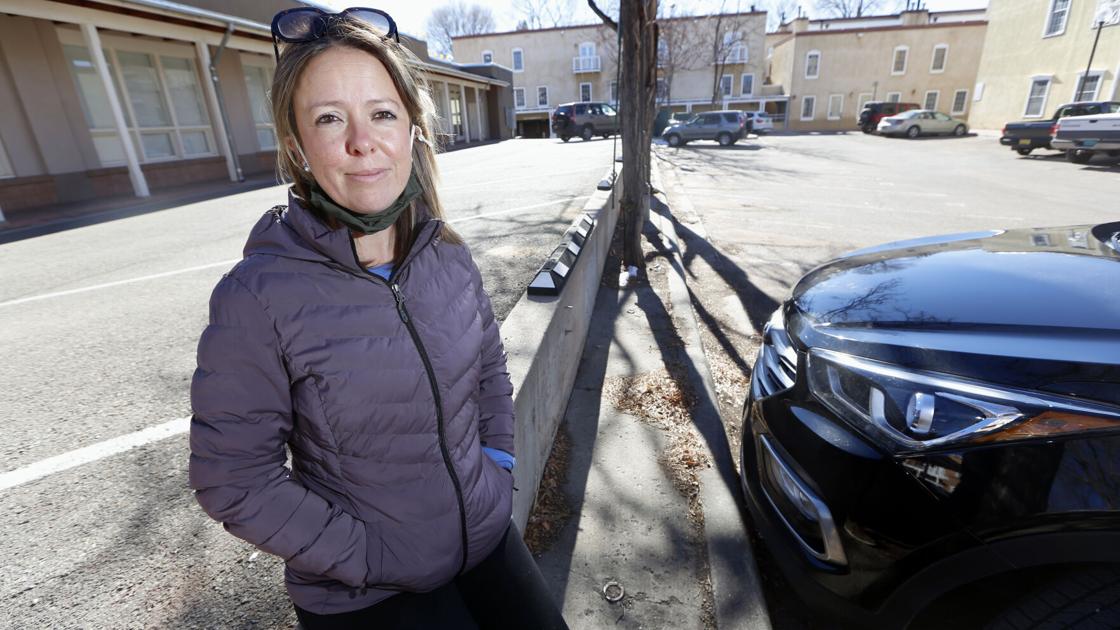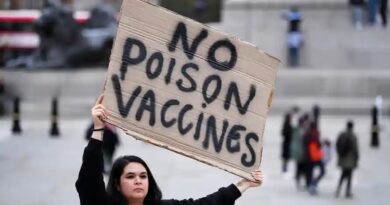Some New Mexicans skeptical about coronavirus vaccine | Coronavirus

Some have serious illnesses or allergies and fear bad reactions to the coronavirus vaccine.
Others are wary about how rapidly the shots were developed.
A few have qualms based on myths, half-truths and conspiracy theories: The vaccine could alter a person’s DNA, they claim, or contains nanochips to track recipients.
Since the start of the pandemic, experts have said a vaccine is the best hope for vanquishing the coronavirus, which continues to surge across the nation and the world, sickening and killing a growing number of patients, battering the economy and disrupting people’s daily lives.
Now that it’s here, with thousands of doses already administered in New Mexico, roughly half of Americans say they don’t plan to get inoculated.
Why?
The question has launched spirited discussions throughout the country, including Santa Fe, where talk about the vaccine — pro and con — is a daily topic on social media.
People give wide-ranging reasons for being hesitant or opposed to getting vaccinated. They center on personal history, concerns about timing and testing, skepticism about everything from science to politics.
Sonny Thornton, 67, a Cochiti Lake resident, said she suffered from severe reactions to flu and shingles vaccines, and she was treated for cancer this year, giving her mixed feelings about “the latest and greatest.”
“I would like to see more information and documentation of side effects,” she said.
Europe, especially Great Britain, is experiencing a new strain of the virus that seems to be worse, she said — making her wonder whether this vaccine will protect against that.
Mary Dolman, a clinical laboratory scientist at Christus St. Vincent Regional Medical Center, said people with serious health conditions, including allergies, have valid concerns. They should consult with their doctors before getting vaccinated, she said.
Still, something people should consider is whether their impairments — such as a weakened immune system — puts them more at risk if they contract COVID-19 than if they get the vaccine, Dolman said.
“They and their physicians have to decide which one is riskier,” she said.
Sabrina Williams, 37, of Rio Rancho said as a cancer survivor, the vaccine is not an option for now.
“My oncologist says no COVID-19 vaccine until they have more data about the effects on cancer-chemo patients and survivors,” Williams said.
A computer database has been created so public health officials and manufacturers like Pfizer and Moderna can keep a record of people who have been vaccinated and have adverse reactions, she said.
Dolman is more concerned about people swayed by misinformation about the virus and vaccine. Much of it swirls on the internet.
“It takes a lot of right information,” she said, “to correct wrong information.”
A new technology used in the vaccines raised concerns among some people who commented on the Facebook thread. A few feared it would change their DNA.
“I’m not an anti-vaxxer type, and I refuse to politicize a health issue,” said Rich Coats, 46, of Santa Fe. “But I won’t be taking it in its first few years. This abbreviated trial period is the shortest ever for a vaccine, much less one that modifies our DNA.”
However, the vaccine does not alter DNA. It uses a spike protein in the virus as messenger RNA — ribonucleic acid — to instruct the body to trigger antibodies as if the full virus were present, the Centers for Disease Control and Prevention says on its website.
Others expressed concerns about not knowing what’s in the vaccine.
“Look at all the garbage … that the government has put in commodity foods and fed our Native peoples,” said Jolene Eustace, 62, of Albuquerque. “Where is the info of what’s in the COVID vaccine?”
According to a New York Times article, there are no microchips and no mystery ingredients in the vaccines, which contains four lipids, four salts and sucrose.
Some commenters said they would eschew the vaccine to resist government control.
David Blum of Santa Fe said he refuses to live in fear and allow authority figures to think for him when it comes to his health. He said he’s certain his immune system will hold up fine against “this little cold virus.”
“We can achieve herd immunity by giving the vaccine to those at high risk for being adversely affected by the virus,” Blum said, “and allowing those who choose not to be vaccinated to take off our masks and build our immunity naturally, from exposure.”
However, the CDC and public health experts like state Human Services Secretary Dr. David Scrase repeatedly have said masks’ main function is to prevent asymptomatic carriers from spreading the virus.
Dolman said no one has truly calculated the percentage of the population that would have to be vaccinated and become infected to achieve herd immunity. Even a conservative estimate such as half the population adds up to staggering numbers, she said.
But the more people who are vaccinated, the better, Dolman said.
Blum is among those who believe a more holistic approach, such as a healthy diet, exercise, supplements and alternative medicines, help bolster people’s immunity to viruses.
Eustace said she turns to traditional Native medicines and ceremonies and eats organic food to keep well.
“I, myself, remember that my late dad said, ‘I do not need immunizations because my Native, Indigenous physical self is enough to defend against many diseases,’ ” Eustace said, adding that it would include this virus.
Jenna Harrington, 39, of Santa Fe describes herself as a wellness advocate with doubts about the vaccine. The government should encourage people to be healthier so their bodies are less prone to illness, rather than telling them to take a vaccine or a pill as a quick fix, she said.
“I know COVID is real and it is a very serious virus, and it does affect everybody differently,” Harrington said. “But at the same time there is so much conflicting information. The government has never really been in favor of wanting people to be healthy. It’s all about money and big pharma.”
Harrington thinks she and her family contracted the virus months ago and suffered only mild symptoms. That makes her feel less urgency to be vaccinated, she said.
Harrington was among the many people who expressed a common concern about the vaccine being developed in months, when past vaccines took years.
She said she’s not a staunch anti-vaxxer and has her two children get routine vaccines except flu shots. Certain vaccines have warded off diseases like measles and polio, she said, but those involved much more research and testing.
“My concern with this vaccine is just how quickly it was produced,” Harrington said.
A number of people said they plan to wait to see what happens to the first recipients of the vaccine before deciding.
“I will let others be the test subjects,” said Jerry Vasilik, 64, of Santa Fe. “The nonpolitical and nonpolitically driven medical information available is not as confident and concise as the political propaganda makes it out to be.”
But Dolman said research has been conducted since the early 2000s into the type of virus that caused SARS back then and is now causing COVID-19. The vaccine was designed so quickly because of the many years of research, she said.
“They didn’t have to invent the wheel this year,” Dolman said. “That wheel was invented decades ago.”
Shen Robinson, 73, who lives in Santa Fe, said she was one of the first children to get Jonas Salk’s polio vaccine in the early 1950s.
The trial vaccine put her in the hospital with a severe fever, and for decades she suffered symptoms similar to post-polio syndrome, she said.
The residual symptoms eventually faded, leaving her cautious, but not anti-vaccine.
The Food and Drug Administration didn’t have three-level testing at the time, Robinson said.
“Although I was affected detrimentally, the Salk vaccine saved children’s lives,” Robinson said. “I am looking forward to getting my COVID-19 vaccination.”
*** This article has been archived for your research. The original version from Santa Fe New Mexican can be found here ***


